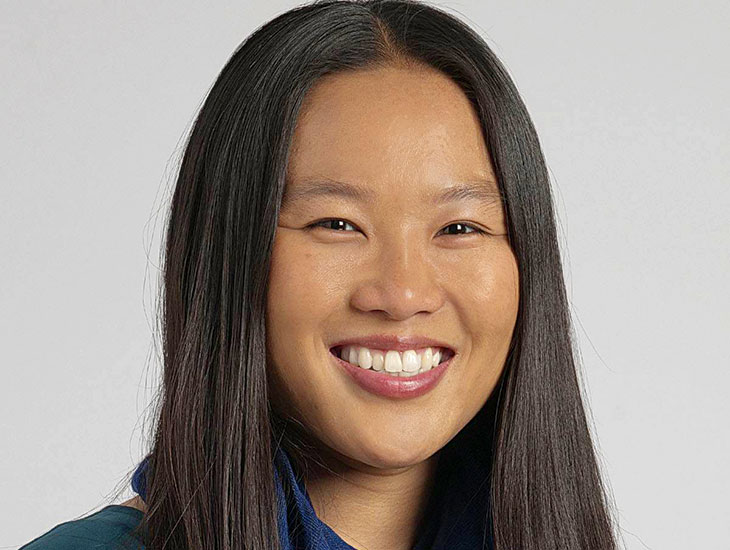Dr. Cindy Chang ’02

This profile originally appeared in the summer 2013 issue of The Exeter Bulletin.
College internships in reality TV and fashion design were the unconventional paths that led Dr. Cindy Chang ’02 to a career in medicine. A Cornell engineering undergrad who’d toyed with attending art school, Chang spent two summers assisting in the production of three “pretty trashy” TV shows filmed in trailer parks. Chang, who’d lived in some 25 cities in Japan, the United States and Taiwan, was alarmed by the public health issues she observed there.
“I thought that if even in the U.S. something like this was going on,” she says, “then clearly there were a lot of people who were worse off [worldwide].”
The following year, on a lark Chang applied for an internship with fashion brand Donna Karan. The fast pace there, Chang now realizes, prepared her for work in emergency medicine. Though she was offered full-time jobs after both internships, Chang realized neither was her ultimate goal. She adds, however, “Because of those experiences, I have a much better sense of how one area of the world affects another.”
Chang completed her undergraduate degree in three years, but stayed one more to earn a master’s in engineering before taking a job at the Broad Institute in Cambridge, MA. She was researching cancer genomics when her boss’s unadulterated joy over the successful growth of a bacterium spurred her in a different direction. “My reaction to that petri dish was, ‘Oh great, it grew, and we don’t have to do it again,’ ” Chang says, “but he was ecstatic.” So Chang sought a career that would be genuinely fulfilling.
This May, she graduated from the Cleveland Clinic Lerner College of Medicine of Case Western Reserve University, whose five-year program requires one year of research as part of the degree. Thus began a dizzying, globe-hopping tour of underserved areas and low-resource communities, starting with a Fellowship at Auschwitz for the Study of Professional Ethics. That experience quickly proved invaluable. “When you have resource constraints, a lot of ethical issues come up,” Chang says. In Malawi, she spent a year helping to run a pediatric malnutrition project and supervised 18 mobile feeding clinics, requiring hours of travel to remote locations; despite those efforts, children died from malnutrition at an alarming rate.
She also managed two randomized clinical trials on diagnosing and treating acute malnutrition, information that the World Food Programme was eager to use in its programs. In recognition of that work, Chang was named one of Forbes’ “30 Under 30” in December 2012, and was profiled in the Science & Healthcare category. She’s also managed to fit in time in Khayelitsha, South Africa, a township outside Cape Town, where she worked a trauma rotation. She completed required rotations in Boston and Cleveland, and then headed to a Navajo reservation in Arizona to learn about midwifery, which she cites as another method for improving health care access in low- resource areas.
Not resting, Chang has worked in a Nepalese clinic (climbing to the Mount Everest base camp because it was there); assisted in a primary care/orthopedics clinic in Big Sky, MT, where she was able to snowboard right out of the office; and spent a month on a boat clinic in Tonle Sap, Cambodia. She’s now set to begin a residency in emergency medicine at Boston’s Brigham and Women’s Hospital and Massachusetts General Hospital.
Chang has already agreed to return to Malawi for at least part of the six-month elective portion of her residency, determined to help with what she sees as a fixable problem in the global health arena.
“We already know what it is that we need to do to treat these kids,” she says. “We have the knowledge; we have the resources. It’s very much an engineering supply-chain distribution issue.” That’s at the root of most of Chang’s ventures: “The theme in all this is I’m trying to figure out how people get resources to places that don’t have them, and how to do it in an efficient, long-term, sustainable way.”
— Sarah Zobel